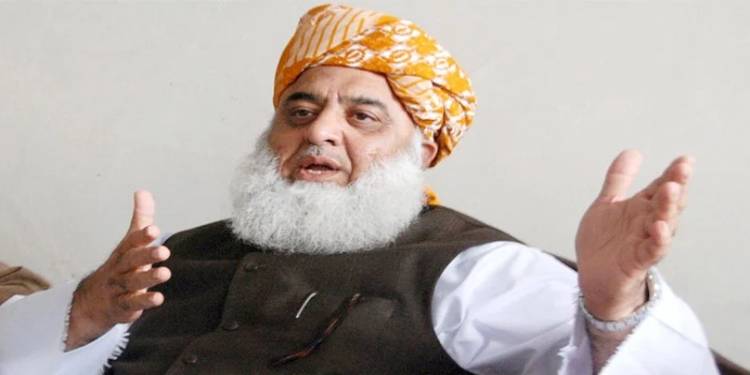
Jamiat Ulema-e-Islam Fazl (JUI-F) chief Maulana Fazlur Rehman stated on Sunday that the Supreme Court (SC) rather than “uniting” is “pressurizing” politicians to unite.
The JUI-F chief made his statement as the ruling coalition tried to persuade Fazl to meet with Pakistan Tehreek-e-Insaf (PTI) Chairman Imran Khan. The effort also follows the Supreme Court's call for the government to speak with the PTI chief about elections.
While taking to Geo News, Fazl said, "We disagree with the justification and philosophy offered for holding negotiations with Imran Khan at this time. He questioned why the PTI leader should be treated with bowing down by the government and why negotiations with someone who bankrupted the country should be held.
The Pakistan Democratic Movement (PDM) chief also urged the Supreme Court to recognize Parliament's decision regarding the release of funds for the Punjab elections. Additionally, he requested that the politicians respectfully inform the Supreme Court of their confidence in them.
He said, "The fact that the Supreme Court is currently divided is a cause for concern and shock. Instead of uniting, the Supreme Court is pressuring politicians to do so. Additionally, he urged the Election Commission of Pakistan (ECP) to avoid appearing weak in court.
The JUI-F chief recently had an angry press conference in which he attacked the Supreme Court and asserted that he stands by everything he stated.
In a news conference held last week, the JUI-F chief claimed that the chief justice had "usurped" the authority of the ECP, as well as that of parliament and the government, leading to a scenario resembling "judicial martial law" in the country.
The PDM chief had also accused CJP Umar Ata Bandial of interfering with the government's duty to choose the registrar of the Supreme Court.
"Powers were divided among all institutions in accordance with the Constitution, and no institution should interfere with the authority of another," he added.

